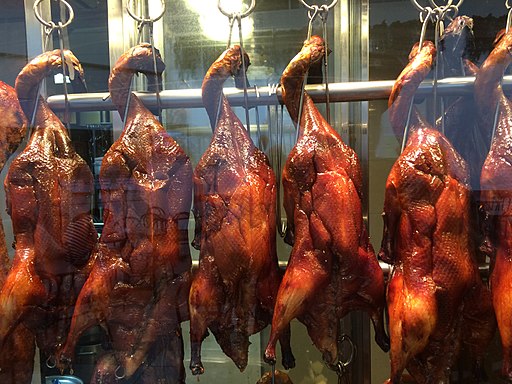Donald Duk by Frank Chin
A young Chinese boy stands on a rooftop in the darkness holding a toy plane. The engine of the plane comes to life and the boy throws the airplane into the San Francisco night. The plane explodes.
Frank Chin’s, Donald Duk, tells the story of a young boy named, Donald Duk. Donald is a conflicted 11 year-old who is often ashamed of his Chinese identity. He wants to be American. He tap dances and idolizes Fred Astaire. He looks down on those around him for being “too Chinese.” This problem is only exacerbated by the Chinese New Year, when Donald’s teacher Mr. Meanwright, singles him out in class for examples of Chinese life.
To make matters worse, Donald’s best friend Arnold is staying for all of Chinese New Year. Arnold is thirsty for knowledge of Chinatown and the Chinese New Year. He asks questions, he participates, he has fun. This only makes Donald all the more isolated and embarrassed about who he is.
The book is, on one hand, a slice of life story about an everyday family trying to make it through another holiday. The book is filled with examples of the everyday goings on in a San Francisco Chinatown. We learn the traditions of Chinese New Year and hear delicious descriptions of meal after meal serving up foods I can only imagine the taste of.
On the other hand, the book also has a surreal and magical element that almost pushes the book into the realm of fantasy. Fred Astaire tap dances in and out of Donald’s experiences. Donald and his friend Arnold are seemingly sharing the same dreams, being thrown into the past experiencing the hard labor the Chinese experienced working on the railroads. Through this dream, we see the work of the Chinese laborers erased from history. I was reminded of Zhi Lin’s art exhibit at the Tacoma Art Museum. Things become even more strange, when Donald and Arnold eventually learn that what they’ve both experienced actually happened.
I connected with Donald. It was easy for me as, I too, grew up taking tap dance classes. Not knowing who you are is often found in coming of age stories like this, but Donald Duk takes it another step by having Donald question his own Chinese heritage. What is American? What is Chinese? These issues are often worked out through conversations with his father, King Duk, and his opera singing uncle, Uncle Donald Duk. They challenge Donald, they While reluctant at first, Donald bit-by-bit and dream-by-dream learns to accept himself and his Chinese heritage.
Better Luck Tomorrow (2002)
Back in 2002, before Justin Lin was directing huge franchise films like Star Trek: Into Darkness, he made a low-budget indie flick with an all Asian cast.
The film centers around Ben Manibag (Parry Shen) and his group of highly intelligent friends who use their status and image as great students to hide the fact that they’re actually criminals. Parry and his friends run scams involving computers, they deal drugs, and eventually become criminal kingpins in their high school world. Things quickly escalate out of control and Ben is left reeling. It’s Breakfast Club meets Goodfellas.
The cast is wonderful and it’s the casting that really sets the film apart from similar genre films. It’s a subtly audacious choice for an all Asian cast and it’s a choice that pays off. Parry Shen and Karia Anna Cheung both give you well rounded characters you can root for. John Cho and Sung Kang ooze charisma and it’s easy to see why they would both go on to bigger things later in the career. However, Joson Tobin as Virgil, gets some of the best dialogue and readily handles both the comedy and tragedy of the story. When the shit hits the fan, it’s Virgil who is shook most.
While not explicitly, the film is largely about Asian and American identity. Like Donald Duk, the characters in both stories are caught in a no-man’s land between being Asian and American. The students in Better Luk Tomorrow actually use this to their advantage. It’s as if they’re invisible. They use their “model immigrant” image to fool teachers and hide in plain sight of everyone and in doing so turns traditional Asian stereotypes out the window. They’re dynamic in a way most mainstream Hollywood films would ignore.
It was clear even in 2002, that Justin Lin was a confident and stylish director. The film hums along with an MTV energy that he would eventually bring the Fast and the Furious franchise as we all as Star Trek. I can say, without a doubt, Better Luk Tomorrow is my favorite of his work. It’s a unique take on the coming-of-age drama with a criminal edge and a cast of wonderful actors finally getting their shot on the big screen.
